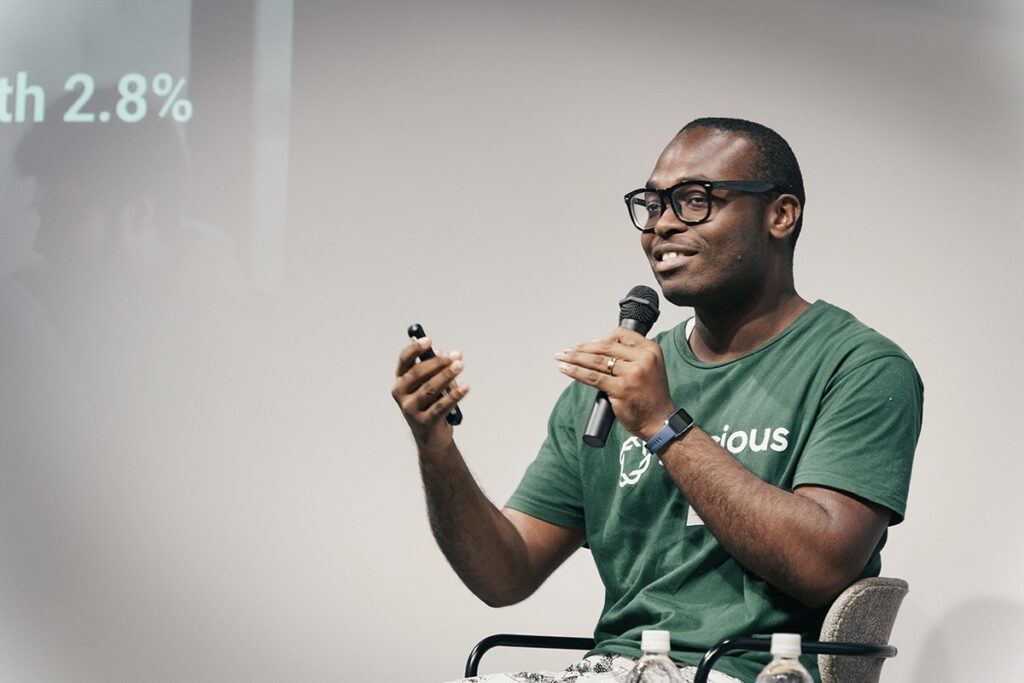DEI: The Strategic Engine Behind Japan’s Higher Investment Returns
The buzz at this year’s Tech for Impact Summit wasn’t just about the next big AI breakthrough, but rather who is building it. A pivotal panel featuring Kathy Matsui and Rika Nakazawa delivered a data-driven argument for why Diversity, Equity and Inclusion (DEI) is not mere compliance, but the crucial foundation for both innovation and a thriving economy, especially in Japan. DEI must move from the “heart” to the “head” of business strategy.
What is the Investment Case for Female Founders in Japan?
Despite 20-30% of founders in Japan being female but receiving only 2% of startup funding, their companies exited at valuations 1.5 times higher than their male peers. This demonstrates a massive market inefficiency and a powerful opportunity for investors.
Kathy Matsui, bringing the sharp focus of a venture capitalist to the discussion, highlighted a key disparity. Matsui noted that female founders consistently “raised less, and their valuations were much lower” than their male peers at every stage.
However, the analysis of IPOs from 2020 to 2024 revealed a game-changing insight: Objectively, investors can “get in at a discount and … exit at a premium,” yet the space remains drastically under-invested.
Matsui’s firm, NetPower Partners, launched Japan’s first female-focused, early-stage fund specifically to address this inefficiency.
Why is Inclusion Crucial for Innovation and Talent Retention in Japan?
The primary “why” behind DEI is the urgent need to attract and retain the best talent, as Japan is critically “running out of people,” Matsui said. For every Japanese company, the number one challenge is “how to attract and retain the best quality talent. Period.”
Rika Nakazawa emphasized that effective initiatives are those “really focused on being able to bring a collective representation of your customer.” When the Japanese workforce grows to be “maybe five generations deep” and includes a significant portion of longer-living women, prioritizing inclusion simply “just makes sense.”
Kathy Matsui contended that innovation requires different perspectives. Organizations cannot drive change by continuously “do[ing] the same thing.”
How Does DEI Extend Beyond Gender and Compliance?
True DEI must move beyond gender statistics to address non-Japanese talent, age discrimination against the younger generation and align itself with the organization’s core purpose and mission. When the “why” isn’t understood at both the strategic “head” and the emotional “heart,” DEI merely “becomes a compliance exercise.”
The panelists stressed the critical need to address inclusion for several groups:
- Non-Japanese Talent: There is a need for a better “journey or path for people who are keeping just personally interested in Japan,” particularly to reduce the waste of foreign students who struggle to find employment after graduating from Japanese universities.
- The Younger Generation: Age discrimination is very prevalent in Japan. Matsui advocated for raising and putting a “spotlight on the younger generation’s voices” in both political and organizational decision-making.
Rika Nakazawa underscored that the spirit of DEI is achieved when a group aligns around a shared mission, transcending individual differences, rather than viewing it as “tokenization”.

How Does Socious Drive Tech for Impact?
Joshua Abonghe, Product Manager at Socious, explained that Socious, the Japanese social startup, organized the Tech for Impact Summit with the core mission “to give everyone the chance to make a difference” by creating a purpose-driven ecosystem.
Socious pursues this mission through several specific products designed to scale good initiatives and create sustainable impact:
- Talent Marketplace (Socious Work): Connects “purposely driven individuals to impact organizations”.
- Socious Fund: Funds “impact driven projects from the global south or marginalized founders”.
- Socious Verify: A “credential verification system”.
The Summit successfully connected exhibitors, investors and tech professionals, bringing Japanese and non-Japanese individuals together to share ideas, potentially helping initiatives “scale and do some greater impact” with Japanese companies.
FAQ
What is the biggest challenge facing every Japanese company?
The number one challenge for every Japanese company is securing talent, specifically “how to attract and retain the best quality talent” due to the demographic reality that Japan is “running out of people.”
What specific data point proves female founders are a strong investment?
Female-founded companies in Japan exited at valuations 1.5 times higher than their male peers, relative to the funds raised, indicating a significant and currently unpriced investment advantage.
According to the panelists, what is the “spirit” of DEI?
It is not compliance or tokenization, but rather achieving alignment around a shared, core mission that allows a diverse group to transcend their differences and work toward a common goal.
Conclusion: The Road Ahead
The Tech Summit 2025 panel and the efforts of organizations such as Socious confirm a powerful truth: DEI is not a side project — it is the core strategy for the future. It is the most effective approach for attracting essential talent, driving necessary innovation and achieving superior investment returns. The Road Ahead for DEI starts with informed insight.To stay ahead of the curve on strategic business topics in Japan, subscribe to the GoConnect newsletter today.

